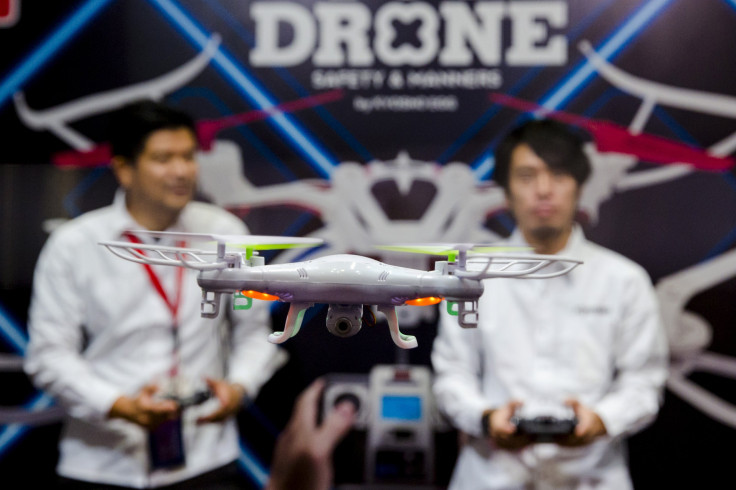Are Drone Accidents Covered By Insurance? As Drone Christmas Gifts Rise, Insurers And Regulators Warn Of Dangers

The insurance industry is bracing itself for the increase in amateur drone fliers that is sure to come after Christmas Day. Nearly a million drones were expected to be placed under Christmas trees in the U.S. this year, and regulators and insurance experts say this could lead to more accidents as inexperienced aviators control the toys originally designed for military purposes.
Everyone has heard that drone use is on the rise , but 2015 is one of the first years drones have become a truly popular holiday gift. The Federal Aviation Administration announced earlier this month most drones would need to be registered with the federal government.
“Make no mistake: Unmanned aircraft enthusiasts are aviators, and with that title comes a great deal of responsibility,” Transportation Secretary Anthony Foxx said in a statement, according to U.S. News and World Report.
As drone sales have increased, retailers have started providing warnings to potential buyers along with guides on how to use the flying gadgets safely. Best Buy, a big drone seller, has placed safety brochures in more than 1,000 stores, Insurance Journal reported. When shoppers buy a drone from Best Buy, they can also purchase a one-year membership to the Academy of Model Aeronautics, an Indiana group for model aircraft hobbyists that provides liability coverage up to $2.5 million.
Amazon similarly posts links to “Know Before You Fly,” an educational website from drone manufacturers. Of course, these educational precautions do not prevent all drone accidents, and there already have been several prominent examples of drone crashes gone wrong this year.
Don’t mess with Santa’s flight path. Fly your drone responsibly & register. https://t.co/gECND0BQf9 #FlySafe #drones pic.twitter.com/Y8JenV8tJB
— The FAA (@FAANews) December 24, 2015Pennsylvania Insurance Commissioner Teresa Miller said in a statement earlier this month that in “many cases, if you have liability coverage in your homeowners or renters policy, this will cover damage from a drone, but it is a good idea to check with your insurer before putting your drone in the sky,” the Morning Call reported.
But drone coverage is not universal, insurance experts warn, and some companies are starting to include exclusions that encompass recreational drones in anticipation of the increase in rookie fliers.
Homeowners policies at Allstate, one of the largest property insurers in the country, will cover damage if a policyholder damages someone else’s property with a drone, Allstate spokesman Justin Herndon told Insurance Journal. But if you damage your own home (called a “first-party claim”), that would not be covered. A spokesperson for State Farm said drone accidents would generally be covered like any other damage under its homeowner policies.
In the U.S., drone policies are new territory for insurance companies, so policies are likely to change as the number of personal drones goes up.
“Companies are trying to figure out how they can write this in a way that protects the consumer and does so in a reasonable way, but also a way in which they can turn a profit,” Don Griffin, vice president of personal lines at the Property Casualty Insurers Association of America, told the Morning Call.
Insurance companies in other countries such as Japan, Canada and the United Kingdom — where drone use is more common — may provide a clue as to what could be coming for American insurance companies. In the U.K., many home insurers have been changing their policies to exclude drone damage, the Telegraph reported, especially in light of the large drone sales predicted for this holiday season.
“All insurance companies can see a risk, even with the toy drones,” Frank Cannon, an aviation law expert, told the Telegraph. “With drones being so prolific, and in the hands of so many amateurs, potential fools and children, a lot of insurance companies will have decided to simply exclude them while they see the risk developing.”
Some policies have said they do not cover motorized vehicles, aircraft or drones while others have begun applying existing policies — like saying they won’t cover remote controlled vehicles — to drone usage.
For new drone users in the U.S., there are many websites with helpful guides on how to take precautions before starting to fly a new aircraft. PC World has a guide, as well as many state websites.
© Copyright IBTimes 2024. All rights reserved.






















